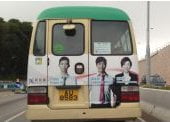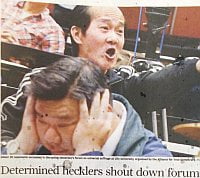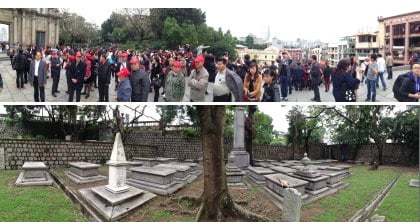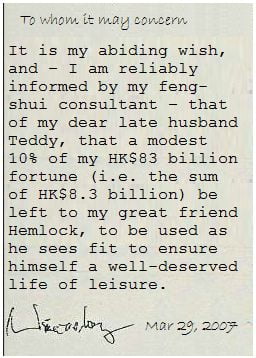RIP former UK Prime Minister Margaret Thatcher (1925-2013). Anyone whose death prompts dancing in the street among ‘adult education tutors’ and the Socialist Workers Party in London and Glasgow must have been truly magnificent. People hated her almost pathologically to the very last because she disproved the existence of the gods they worshipped. To take just one example: she took the noble, brave and hard-working coal miners who selflessly provided Britain with its fuel, and revealed them to be a collective parasite dependent on state subsidies borne by productive economic activities and the less well-off who struggled to pay electricity bills. Among her other crimes: not groveling to hostile foreign powers, hostility towards communism, skepticism towards trendy urban intellectuals, an unabashed attachment to small-town values, and a lot more, some of it downright embarrassing. The reactionaries of the left never forgave her for refusing to even acknowledge their illusions, which they had to watch being shattered by three consecutive election victories.
For the right-thinking among us, the fact that she provoked such hilarious degrees of loathing from these particular types of people was reason enough to adore 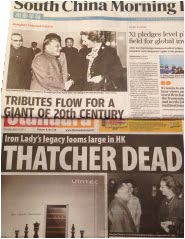 her. Still, there are two slight problems. One is the question of how much she was a symptom rather than a cause of radical reform. The statist, Fabian, planned economic model had been visibly failing for a good 20 years; if she hadn’t come along at that time with a new awareness of the coercive nature of taxation, nationalized industry and labour unions, someone else probably would have (though without the amazing hairdo). The second is that she had a tragic sense-of-humour deficit.
her. Still, there are two slight problems. One is the question of how much she was a symptom rather than a cause of radical reform. The statist, Fabian, planned economic model had been visibly failing for a good 20 years; if she hadn’t come along at that time with a new awareness of the coercive nature of taxation, nationalized industry and labour unions, someone else probably would have (though without the amazing hairdo). The second is that she had a tragic sense-of-humour deficit.
Thatcher’s role in the Big Lychee’s fate was to extract surprisingly detailed promises from Beijing about the city’s autonomy post-1997. She also (not being totally incapable of wit) once referred to our local legislative body as ‘Hong Kong County Council’. If – by some cosmic twist – she were running Hong Kong today, she would approve of our low taxes and public spending, but she would probably be concerned that ad-hoc hand-outs like subsidized computers for poorer kids would become silly money-wasters like the taxpayer-funded school milk rations she had the originality and sense to scrap in the UK.
She would find plenty of targets here for her famous handbag. She would be outraged by the huge gap in compensation levels between the civil service and the private sector. Aside from wasting taxpayers’ money, high public-sector pay and benefits distort the labour market, luring otherwise commercially productive talent into pen-pushing bureaucratic comfort. She would also take an axe to public-sector entities that compete unfairly with private industry, such as the Mortgage Corporation and the Trade Development Council. She wouldn’t know where to start when it came to choosing which vested interest to eat for breakfast every morning. Small stock brokers who presume the right to nap at lunchtime and live off bloated bid-offer spreads wouldn’t last long. The cops and traffic wardens who mysteriously allow unfettered illegal parking might find themselves replaced by hungry private operators armed with wheel clamps.
She would question the need to for the government to nurture an entire caste of serfs dependent on the state for their housing. She would free them to live where they wanted, rather than where the bureaucrats decided they should, by making them owners of their homes. In so doing, she would hugely increase the proportion of the population who possess assets – helping one way or another to reduce the city’s existing inequality of wealth.
This list could go on and on. Of course, the media, politicians and her own officials would scramble to talk her out of such drastic, indeed unthinkable, changes. “But, but, but,” they would splutter (as they do with everything from road pricing to gay marriage), “there is no consensus!”
To which she would reply with the phrase (with which she is widely credited): “Consensus is an absence of leadership.” As we have surely noticed…

